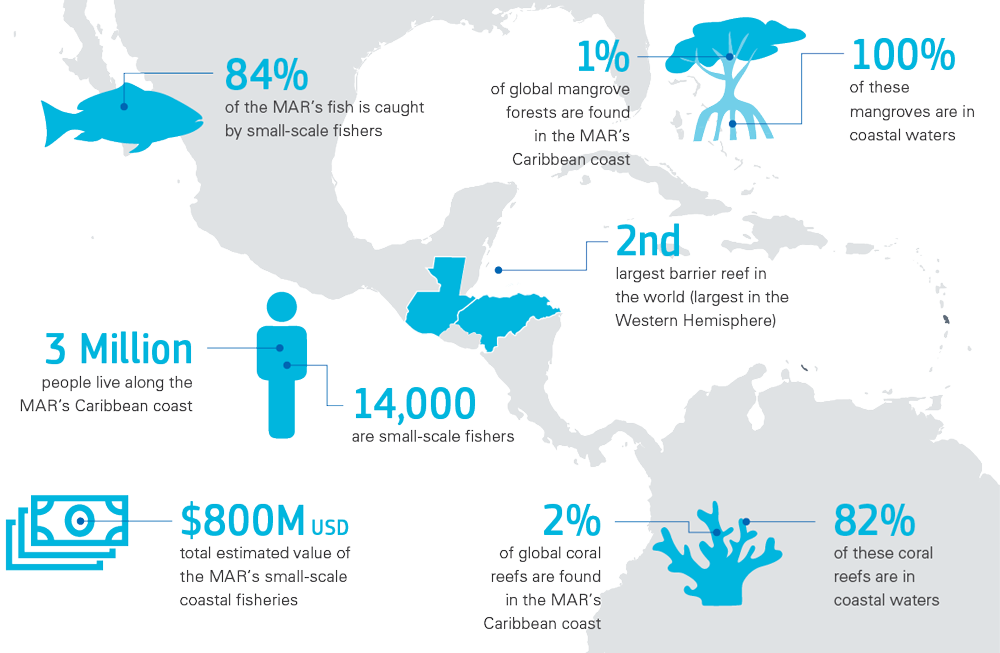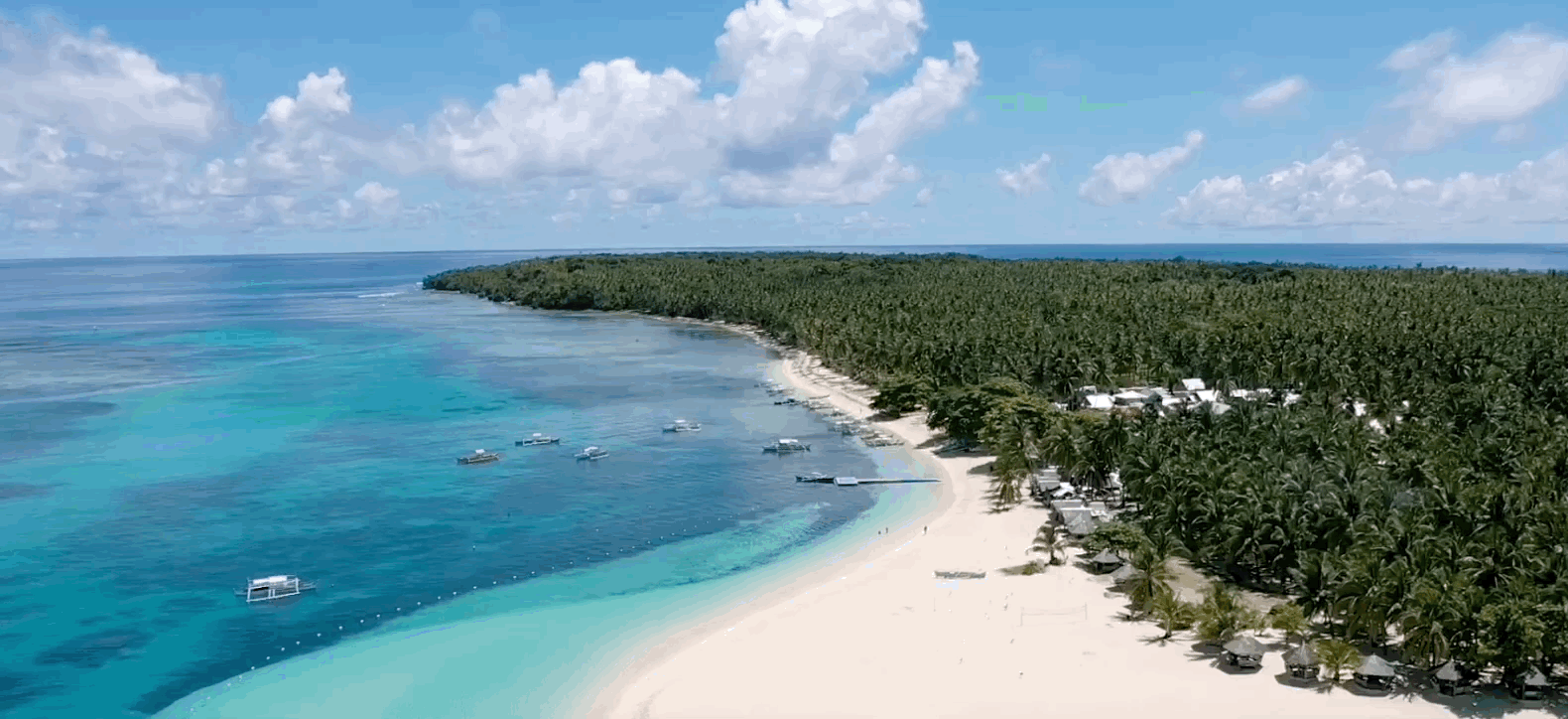Rare in Central America
Central America’s Mesoamerican Reef (MAR) is the second largest barrier reef in the world, and the largest in the Western Hemisphere. With over 600 miles of essential mangrove, coral reef, and seagrass bed habitats, stretching across the Caribbean coasts of Mexico, Belize, Guatemala and Honduras, the livelihoods of over two million people across the region depend directly on the reef’s health.
The fish populations that these amazing habitats support provide invaluable benefits to coastal communities, including economic development, food security, and poverty alleviation. Community-based small-scale fisheries across the MAR form a crucial part of the regional economy, provide food and jobs for thousands of small-scale fishers, and are a central component of the region’s cultural fabric.

The Issue
Overfishing continues to jeopardize coastal fishers’ livelihoods and the future of communities across the region. Community-based fisheries, especially those not targeting export species like lobster and conch, have largely operated under little or no effective governance. The dispersed and complex nature of this sector is hard for the traditional central government authority and “command and control” management approach to monitor and regulate. Further, a lack of accurate fisheries data presents an ongoing barrier for effective marine management. Managing these fisheries must focus on local community-level action while also building effective governance across municipal, provincial, national, and regional scales.
Stay Connected
Sign me up for occasional emails to learn more about Rare’s work and how I can support its mission. I know I can unsubscribe at any time.
The Fish Forever Solution
About Rare’s Fish Forever program
Fish Forever in Central America works with fishing communities and municipal governments to build and strengthen coastal fisheries management across the Caribbean coasts of Honduras and Guatemala.
The program works to:
- Establish managed access areas that provide fishing communities clear rights to fish in certain areas
- Create networks of fully-protected and community-led no-take marine reserves to replenish and sustain fish populations and protect critical habitat
- Build community engagement and effective management bodies to support local decision-making
- Enable fishers to adopt more sustainable and better-regulated fishing behaviors (e.g., become a registered fisher; record fish catch; respect fishing regulations; and participate in fisheries management)
- Collect, disseminate and help fishing communities use data for decision-making
- Advance coastal fishing communities’ inclusion in financial and market opportunities to increase household resilience
- Mobilize public and private investment in coastal fisheries and marine natural resources
- Enact policy to promote and sustain a community-based management approach
Case Study
Case Study: Expanding community-led conservation for fishers in Honduras
In Honduras, our goal was to use Rare’s Fish Forever approach to secure rights for local communities to lead in the conservation of the first 12 nautical miles of ocean from shore. Here is how we did it.
Bright Spots
The following film series, “Bright Spots,” produced in partnership with The Summit Foundation, shares the inspiring stories behind national and regional adoption of community-led conservation measures to protect Central America’s coastal communities.
Bright Spots: Belize bright spots: Guatemala Bright Spots: Honduras Bright Spots: Mexico
Partners
Partners in Central America
Fish Forever has developed an extensive global partnership network of over 100 organizations and institutions to make change happen. Rare focuses on building the capacities of our implementing partners to sustain this change long after Rare’s involvement ends. Rare partners in Central America include national government ministries (Ministry of Agriculture and Livestock, Fishing Directorate, port authority, and navy); municipal governments; fishers and fisher associations (Puerto Cortes, Utila, Guanaja, APROCUS Fisherman association in Honduras, Fisherman network in Guatemala); universities (Universidad Nacional Autonoma de Honduras); and civil society organizations (the Honduran Centre for Marine Studies, Smithsonian Institution, and Fundaeco in Guatemala).
Contact Us
- Central America
- United States
Central America
Email: dvasquez@rare.org
Global Headquarters
1310 N. Courthouse Road, Suite 110, Arlington, VA, 22201
Email: info@rare.org
Phone: 703.522.5070
